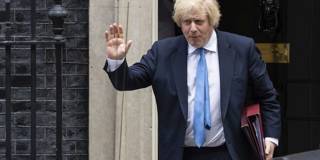
Boris Johnson’s New-Model Colonial Policy
By subsuming the UK's renowned international-development agency under the country's diplomatic apparatus, Prime Minister Boris Johnson claims to be looking out for the British taxpayer. In fact, he is striking a severe blow to Britain's own soft power, economic prospects, and moral standing in the world.
ADDIS ABABA – British Prime Minister Boris Johnson’s decision to merge the United Kingdom’s Department for International Development (DfID) with the Foreign and Commonwealth Office is a deliberate slap in the face to developing countries. Worse, it comes just when African countries are crying out for international support to fight COVID-19 and its economic fallout.